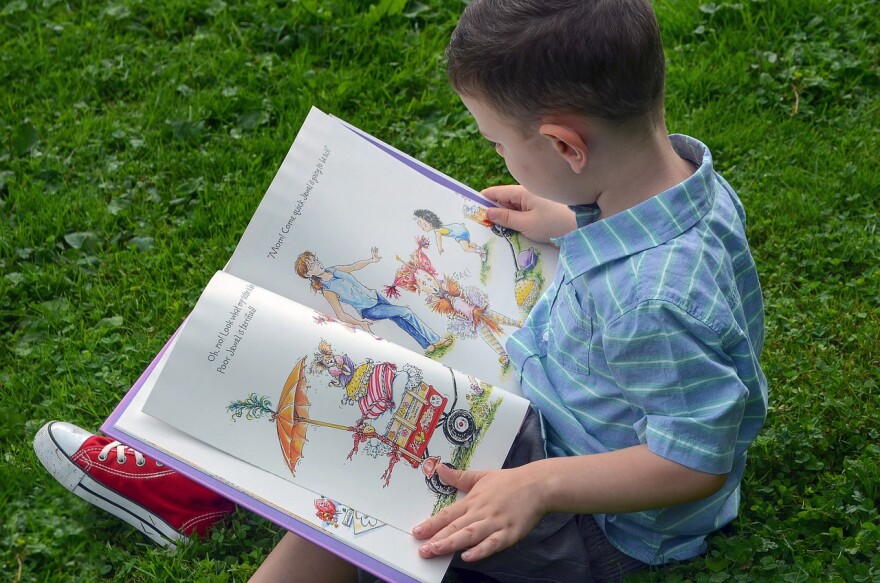The Orange County School Board has adopted a new policy that puts a procedure in place for challenging books beginning next school year. The last day of school was Friday, May 26.
Dozens of Orange County students signed up to speak at school board meetings before the end of the school year, to protest a new policy for challenging books in the district.
Lily Stahlman was among them.
“Hi, I'm Lily Stahlman and I'm a ninth grader at Winter Park High School, go Wildcats. And as a little girl I couldn't read, not even at the age where little girls were supposed to be able to read. I was stuck, my family and I figured out after a series of tests that I was dyslexic.”
Stahlman said with a little tutoring and the help of her mom, she was able to read her first book, “Charlotte’s Web.” Now she’s an avid reader and public speaker.
A new Orange County Schools policy allows any parent or resident to challenge a book they deem to be, “pornagraphic, harmful to minors, and/or obscene.”
“Board members: if you continue to let books be banned by the power of the so-called review by parents, then you are doing a great injustice to kids like me, for those who long for a place to belong in this crazy world," said Stahlman.
The new policy was put in place after Gov. DeSantis signed House Bill 1069 into law. It requires every school board in Florida to have a policy in place that allows parents and residents to object to classroom materials or books in school libraries.
Under Orange County’s new policy, people who want to challenge a book, submit a form outlining why a book should be removed, and meet with a school administrator or principal. If they can’t come to an agreement about what to do with a book, the book is reviewed by a five person district-wide literacy council.
Over the last two school years, at least five books have been removed from OCPS.
When board members voted on the policy earlier this month, only one person, Karen Castor Dentel, voted against. Castor Dentel said she’s not opposed to having a policy in place, but there should be a limit on the number of challenges that one person can make.
“So, we've seen problems in Clay County where one individual who's not even in the school, not a parent, not a teacher submitted 360 challenges," said Castor Dentel. "So I remember bringing that up saying we don't want to have that same issue. And our policy does not address that.”
Castor Dentel also says the policy doesn’t include an appeal process.
Jen Cousins with the Florida Freedom to Read Project has been speaking out against the policy and said it’s been a frustrating last few months. According to a PEN America report, books that are being taken off shelves in Florida and throughout the US are overwhelmingly about gay, Black and brown people.
“Theoretically, there's nothing we can do, because it's a law," said Cousins. "All we can keep doing is encouraging people to advocate at their school boards to keep these books on shelves, ask our members to join a literacy review committees, so that we can have voices in those spaces to defend these books.”
But as much as some parents and residents are opposed to the policy, others support it. Demensio Barton, who ran unsuccessfully for Orange County school board chair, applauded the new policy.
“I love the fact that the youth are talking and they're speaking, but when they talk and say that the parents are like fascists because of their wisdom, they're trying to help them not to fall into traps," said Barton. "At that point, I say, do what any wise adult would do, and stand even if they do not agree.”
The school board says it will meet to reconsider the policy over summer break and make changes to incorporate other laws including an extension of the Parental Rights in Education or Don’t Say Gay law.
Copyright 2023 WMFE. To see more, visit WMFE. 9(MDAyNDY5ODMwMDEyMjg3NjMzMTE1ZjE2MA001))



